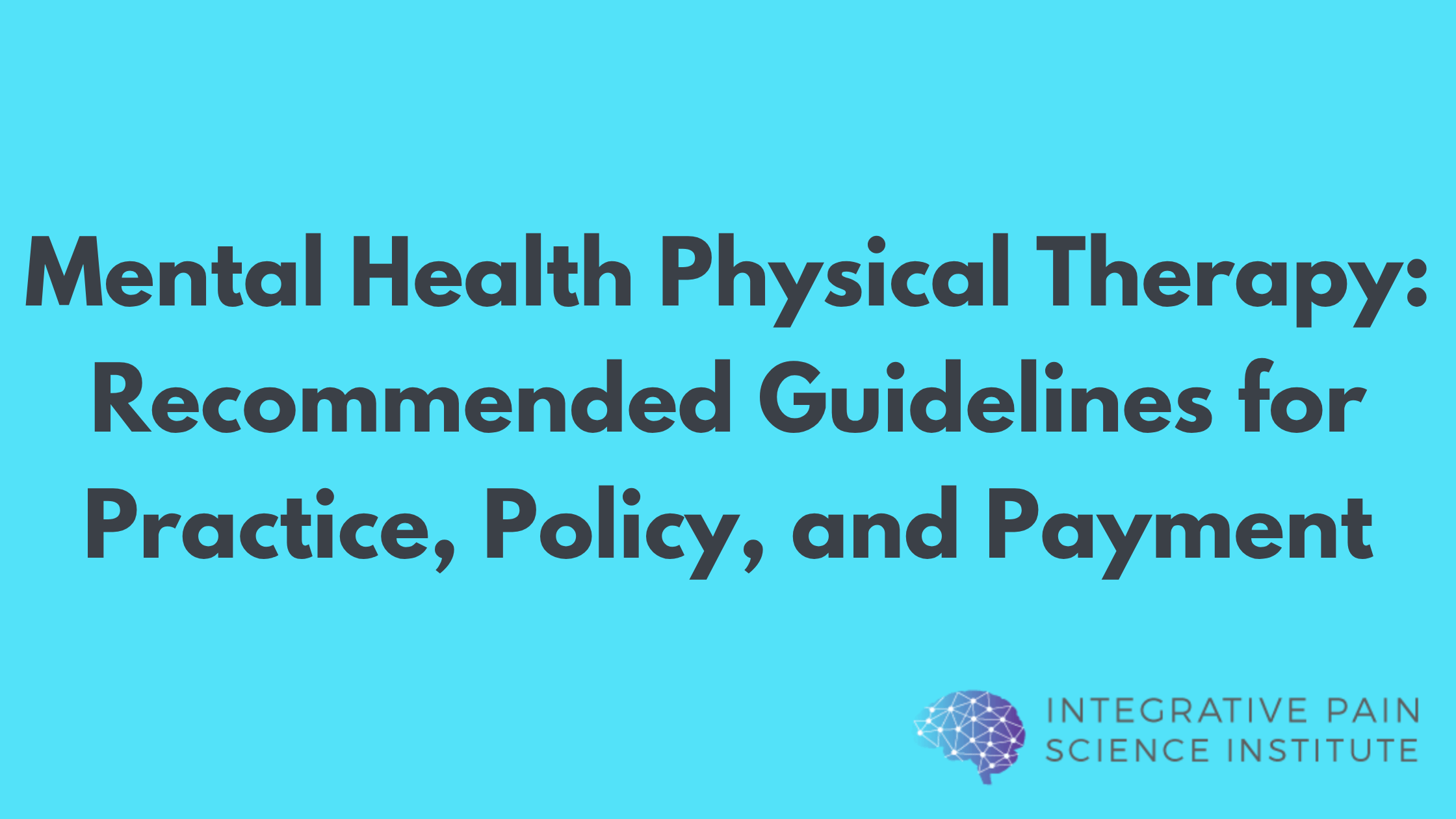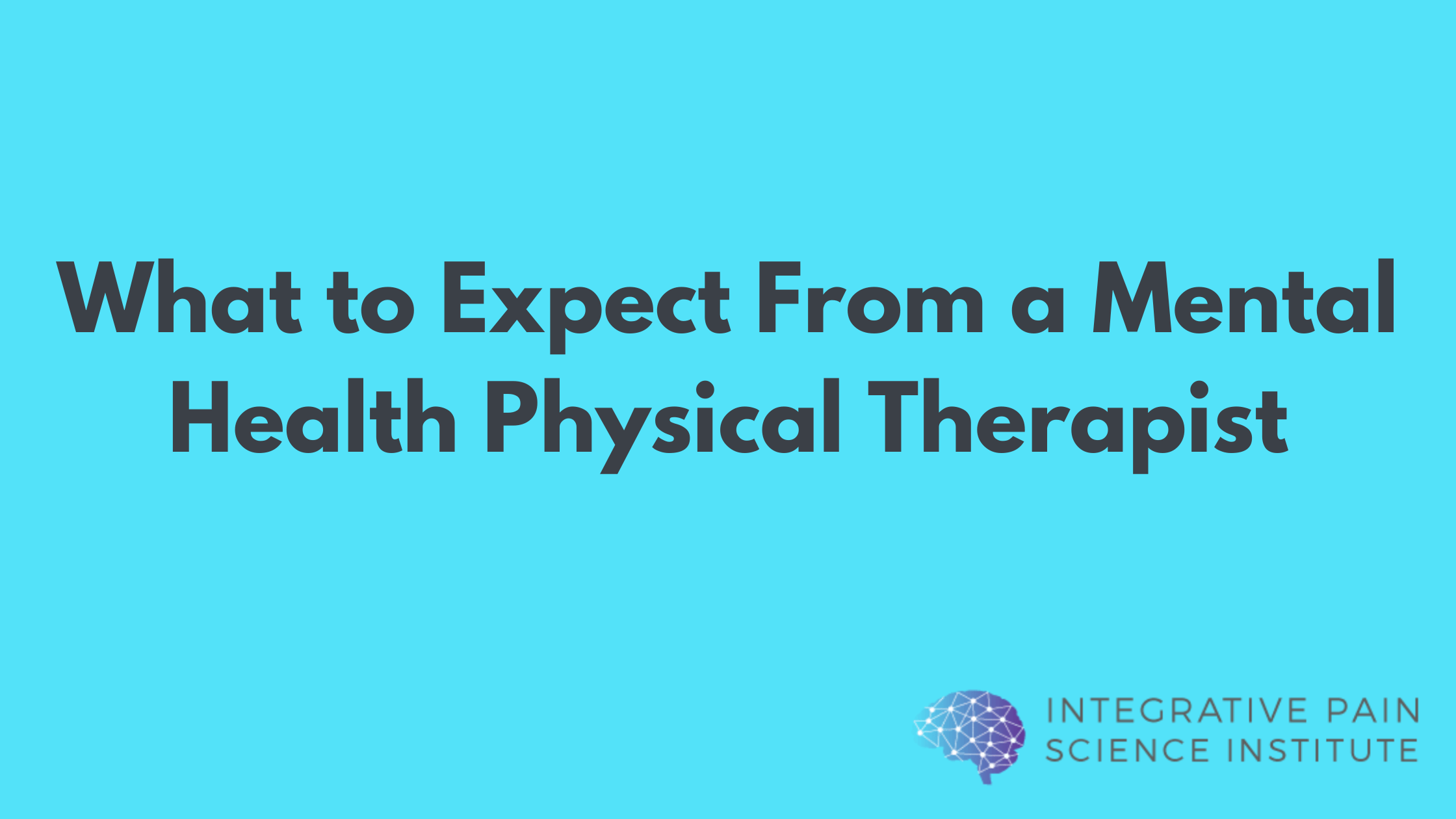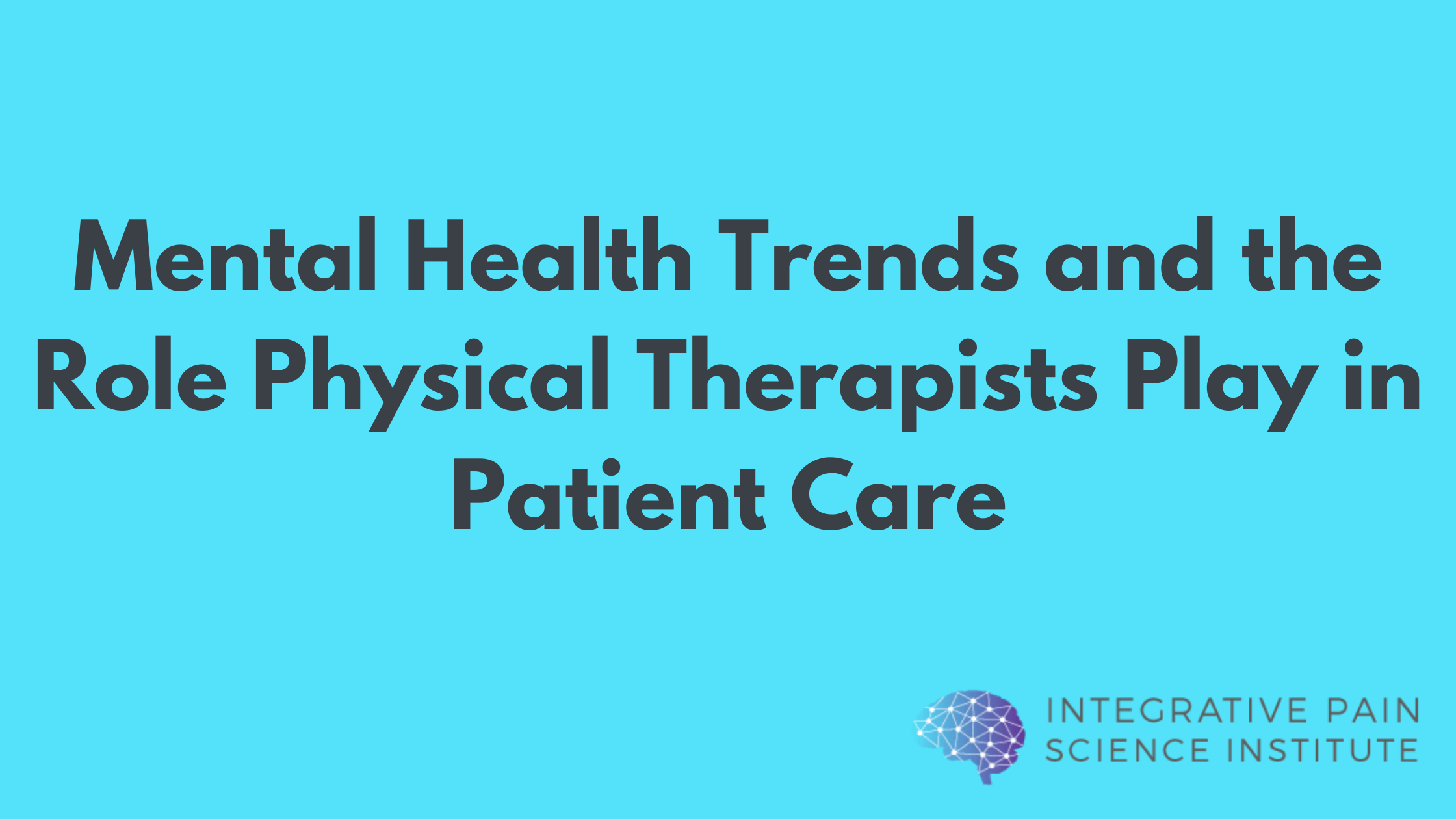Physical therapists (PTs) are uniquely positioned to address both the physical and psychological aspects of health due to their expertise in human movement and function. This paper outlines five methods through which PTs can positively influence their clients’ stress and anxiety: exercise and physical activity; lifestyle-based interventions including sleep and nutrition; cognitive behavioral techniques; embodiment approaches; and exposure therapy for anxiety disorders. Each method is rooted in evidence-based practices and offers a multidimensional approach to holistic health care.
Stress and anxiety are prevalent issues that significantly impact an individual’s quality of life and overall health. Physical therapists, as part of the multidisciplinary approach to health care, can offer valuable interventions that address not just the physical symptoms but also the psychological aspects of these conditions. The incorporation of strategies aimed at reducing stress and anxiety within physical therapy practice can enhance patient outcomes and improve the efficacy of physical rehabilitation.
Exercise and Physical Activity
Physical activity is a cornerstone of physical therapy and has been extensively documented to alleviate symptoms of both stress and anxiety. Regular exercise triggers the release of endorphins, known as the body’s natural painkillers and mood elevators. Aerobic exercises, such as walking, swimming, or cycling, have been shown to reduce anxiety and depression in a variety of populations. Strength training and flexibility exercises also contribute to improved mood and reduced anxiety levels by increasing muscle mass and enhancing overall physical health, which in turn impacts mental health.
Lifestyle-Based Interventions
Lifestyle modifications play a critical role in managing stress and anxiety. Physical therapists can guide patients in integrating two key components of lifestyle change: sleep and nutrition.
Sleep: Sleep is a critical recovery process for both the body and mind. PTs can educate clients on sleep hygiene practices such as maintaining a regular sleep schedule, creating a bedtime routine, and designing an optimal sleep environment. Additionally, specific relaxation and breathing exercises can be taught to help clients manage insomnia and improve sleep quality.
Nutrition: Nutritional counseling can be integrated into physical therapy to support mental health. Diets rich in omega-3 fatty acids, vitamins, and minerals have been linked to lower levels of stress and anxiety. Physical therapists can collaborate with dietitians to provide tailored nutritional advice that supports an anti-inflammatory diet, potentially reducing the physiological stress responses and improving mood stability.
Cognitive Behavioral Techniques
Cognitive Behavioral Therapy (CBT) techniques can be adapted for use by physical therapists to help clients manage anxiety. Techniques such as cognitive restructuring, which involves identifying and challenging negative thought patterns, and graded exposure to feared activities or scenarios, can be particularly effective. Mindfulness-based stress reduction and other relaxation techniques can also be taught within sessions to help patients cope with and reduce their anxiety.
Embodiment Approaches
Embodiment in physical therapy involves the use of movement to enhance the connection between mind and body. Techniques such as yoga, Pilates, and Tai Chi can be incorporated into treatment plans to improve physical strength and flexibility while also enhancing mental clarity and reducing anxiety. These practices emphasize breath control, alignment, and mindful movement, which are beneficial in the regulation of the autonomic nervous system and the mitigation of anxiety symptoms.
Exposure Therapy for Anxiety Disorders
Exposure therapy is a psychological treatment that has been found effective for anxiety disorders and can be adapted for use in physical therapy. This approach involves the safe and controlled exposure to the physical sensations of anxiety, with the aim of reducing the fear response associated with these sensations. Physical therapists can use exercise as a form of exposure therapy by gradually increasing the intensity of physical activity in a controlled manner to help patients overcome their anxiety related to specific movements or physical tasks.
Physical therapists have a broad toolkit that can be effectively utilized to support clients experiencing stress and anxiety. By integrating these five approaches—exercise, lifestyle modification, cognitive behavioral techniques, embodiment approaches, and exposure therapy—into their practice, PTs can provide comprehensive care that addresses both the physical and psychological aspects of these conditions. Further research and interdisciplinary collaboration will continue to enhance the scope and effectiveness of physical therapy interventions in mental health care.

Joe Tatta, PT, DPT is a leader in integrative pain care, championing the cause for safe and effective chronic pain treatment. He serves as the CEO of the Integrative Pain Science Institute, a groundbreaking health organization dedicated to transforming pain care and mental health through evidence-based treatment, pioneering research, professional development, and free consumer education.
Learn more at: Integrative Pain Science Institute.com



